BIENVENIDO
¡Saludos! Happy Friday and welcome to the 41st edition of Comprende. After a 2-week break due to personal and business-related travel, we’re back!
The 3 Core Stories:
This week, we dive into Puerto Rico’s entrepreneurial landscape with Project Makers, a groundbreaking initiative empowering local entrepreneurs with resources and mentorship to drive economic and social impact on the island.
Next, we celebrate the legendary friendship of Diego Luna and Gael García Bernal as they reunite on screen for Hulu’s La Máquina, bringing a story rich in culture and grit to American audiences in Spanish.
Finally, we explore the impact of the Latino vote in this week’s presidential election, highlighting why it’s wrong to single out Latino men for recent results and emphasizing the diverse factors driving Latino political choices.
So, grab your cafecito or cervecita (depending on where you are), settle in, and if you enjoy, please forward the newsletter to friends or share it on social media! ☕️ 🍺
Empowering Puerto Rico: How Project Makers is Fueling Local Entrepreneurship
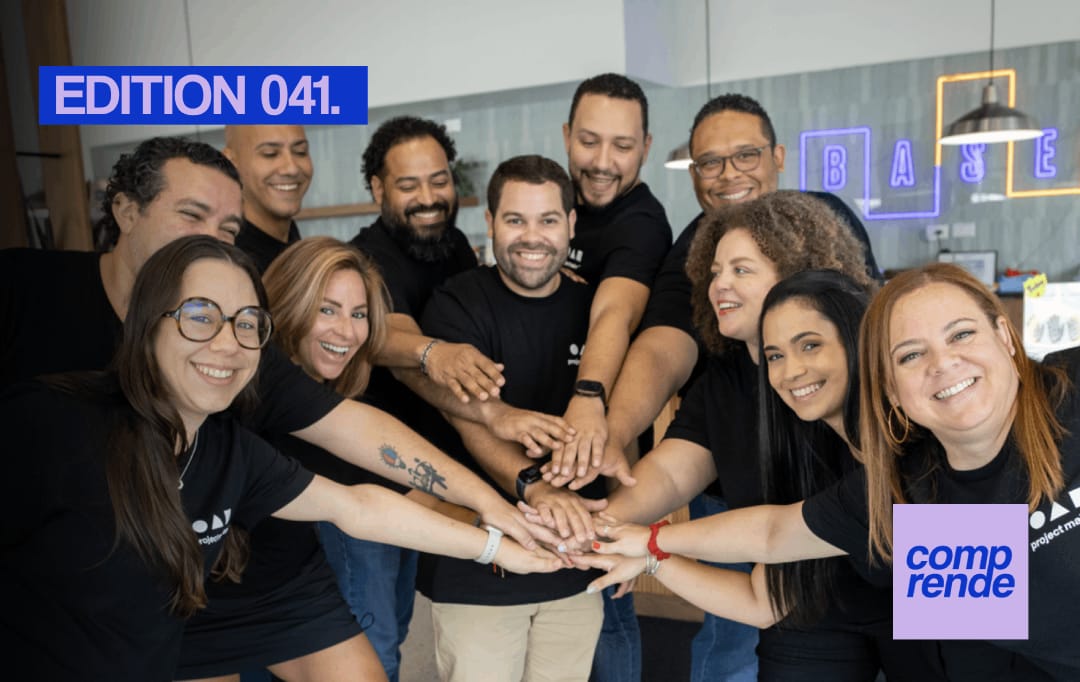
Project Makers Team | Courtesy of Project Makers
As a Puerto Rican who started in law with plans of entering politics, I eventually shifted paths to entrepreneurship, realizing that economic empowerment is the real opportunity for impact on our island. Earlier this year, I had the privilege of meeting Nerma Albertorio, Managing Director, and Néstor Guarien Taveras, Director of Accelerate, from Project Makers at L'Attitude. I was so excited to learn about their work, knowing it perfectly embodies this vision for Puerto Rico’s future.
Project Makers, part of the Platform for Social Impact, is reshaping Puerto Rico’s business landscape by providing entrepreneurs with resources, mentorship, and community connections to fuel both economic growth and social impact. The initiative is structured to help individuals from underserved backgrounds transform ideas into viable businesses, all while contributing to poverty reduction and economic mobility.

Project Makers Accelerate | Courtesy of Project Makers
The program’s approach is organized into four phases, tailored to meet entrepreneurs at every stage of their journey. In the Startup phase, participants receive comprehensive business training—from finance to compliance—with personalized consulting to address early challenges. It’s an invaluable toolkit for anyone ready to launch their business.
The Accelerate (Social Impact) phase, Puerto Rico’s first accelerator dedicated solely to social enterprises, provides participants with up to $50,000 in capital, mentorship, and networking opportunities. This phase empowers entrepreneurs to tackle pressing social issues, aligning with global sustainability goals and reinforcing their potential to make a lasting difference in Puerto Rican communities. Learn more about the participants of the 2nd Cohort of the Accelerate program here.
For those with established businesses, the Support phase offers advanced mentorship and resources to help them expand sustainably. Finally, the Alumni phase keeps past participants connected to exclusive perks, events, and an invaluable network, ensuring that Project Makers’ support is long-lasting.
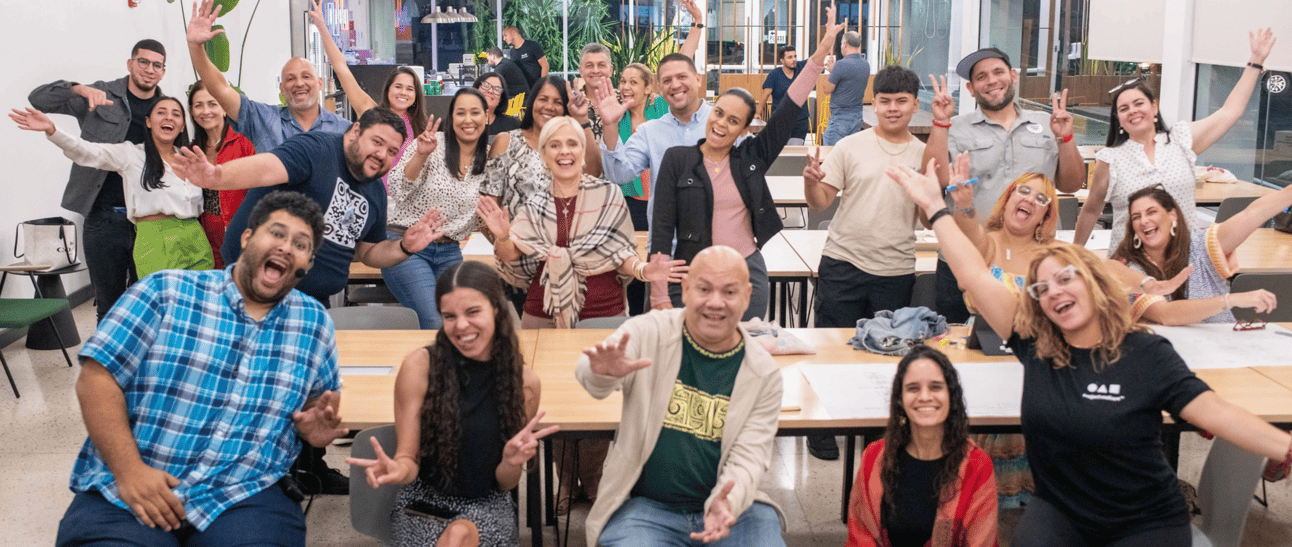
Project Makers Alumni | Courtesy of Project Makers
Project Makers embodies the vision of a thriving Puerto Rico, built on the strength of local businesses committed to social change. As a proud Puerto Rican and entrepreneur, it’s inspiring to see leaders like Nerma and Néstor championing these impactful programs, helping to build a more resilient and prosperous future for our island.
Lifelong friends, Diego Luna and Gael García Bernal Team Up for La Máquina, Hulu’s first original Spanish Language Series.

Gael García Bernal and Diego Luna | Courtesy of Monica Schipper via The Hollywood Reporter
Diego Luna and Gael García Bernal, best friends since birth, are reuniting on screen in La Máquina, Hulu’s first Spanish-language original series. Their friendship goes back to childhood in Mexico City, where they grew up around theater thanks to their parents’ careers in the arts. Over the years, they’ve become icons of Mexican cinema, especially after starring together in the 2001 classic Y Tu Mamá También, directed by Alfonso Cuarón.
In La Máquina, García Bernal plays Esteban "La Máquina" Osuna, an aging boxer whose struggles mirror larger themes of resilience and loyalty. Luna takes on the role of his manager, Andy Lujan. For both actors, this series is special: it’s a story deeply connected to their roots, from their love of boxing to the chance to work together in Spanish for an American audience.
Beyond acting, Luna and García Bernal are known for their socially conscious work, founding the Ambulante Film Festival and their production companies, Canana Films and La Corriente del Golfo, which focus on impactful storytelling. La Máquina isn’t just a comeback—it’s a celebration of their friendship, shared culture, and commitment to meaningful stories.
Check out a full interview with Diego Luna and Gael García Bernal on NPR here: Friends since birth, Diego Luna and Gael García Bernal are back together on screen
Why Blaming Latino Men for Election Results Misses the Bigger Picture
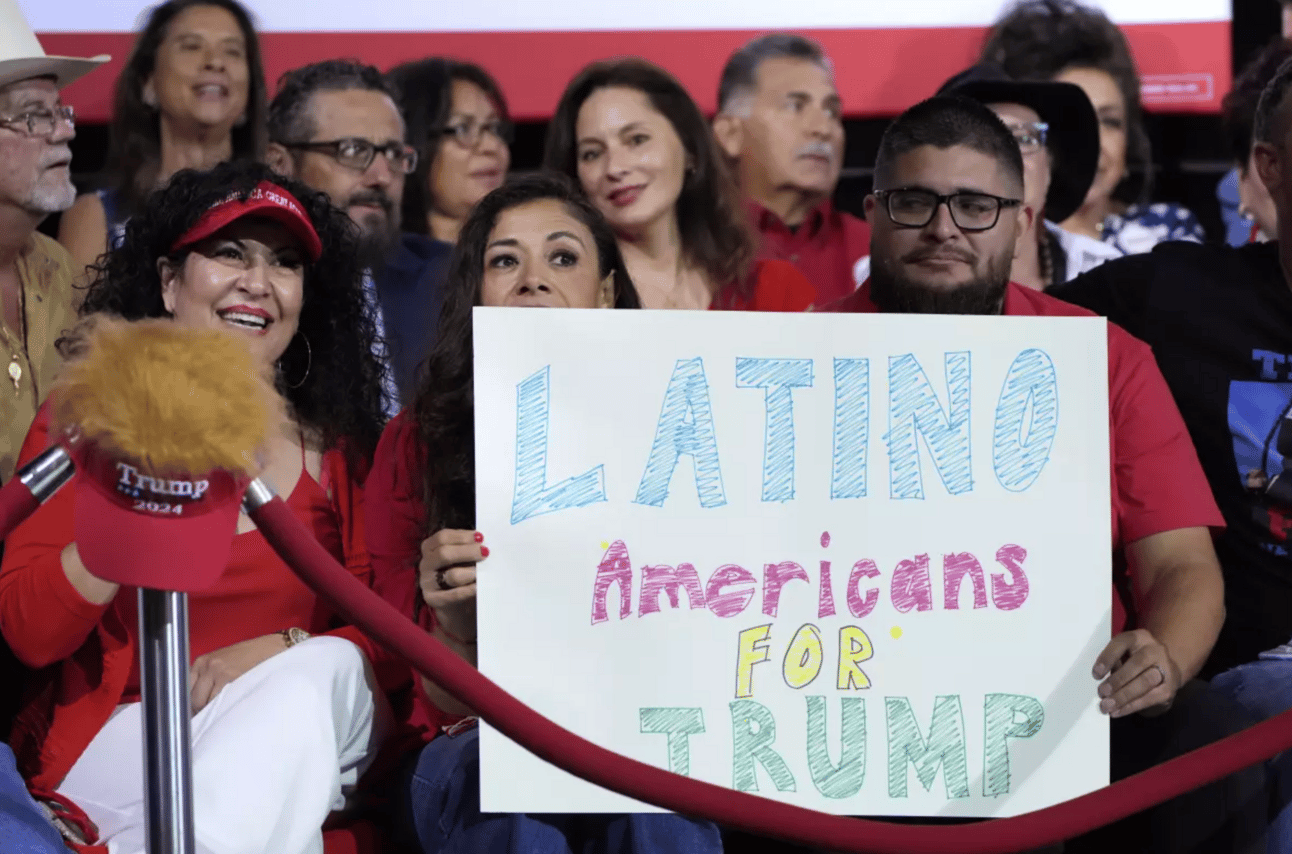
Latino Trump Supporters at a Rally | Courtesy of Alex Brandon / Associated Press via LA Times
Latino voters played a pivotal role in this week’s presidential election, but it's misguided to pin Trump’s victory solely on Latino men. Yes, exit polls show a notable swing toward Trump among Latino men, with NBC and Edison Research estimating his support reached over 50% in some key states. But to single them out as the reason for Trump’s win ignores broader dynamics at play.
The reality is that many Latino men feel the Democratic Party has overlooked their economic concerns. Often working-class and deeply rooted in family and community, these voters are disillusioned with a party that, in recent years, has focused on college-educated and urban issues while sidelining the priorities of its traditional base. This frustration, combined with Trump's targeted messaging, resonated with those who felt unheard.
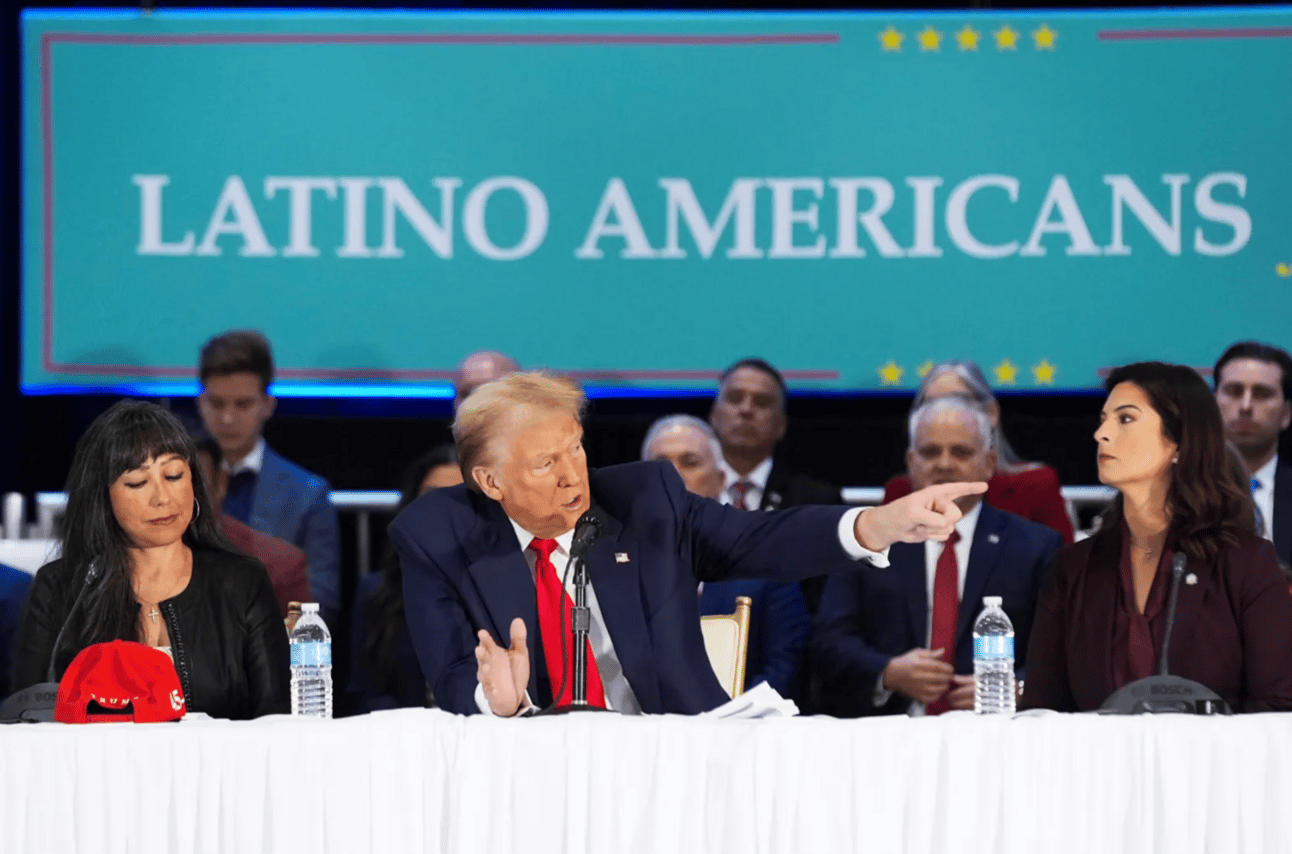
Trump speaking at event on U.S. Latinos | Courtesy of AP Photo/Alex Brandon via Rolling Stone
Latino voters focus on issues over party loyalty, with 64.2% identifying as having low party allegiance as shown in the 2024 LDC U.S. LATINO VOTER REPORT. Both parties often overlook the diversity within our community, treating us as a single voting bloc. To truly connect, campaigns must understand and address the unique priorities and concerns that drive our votes.
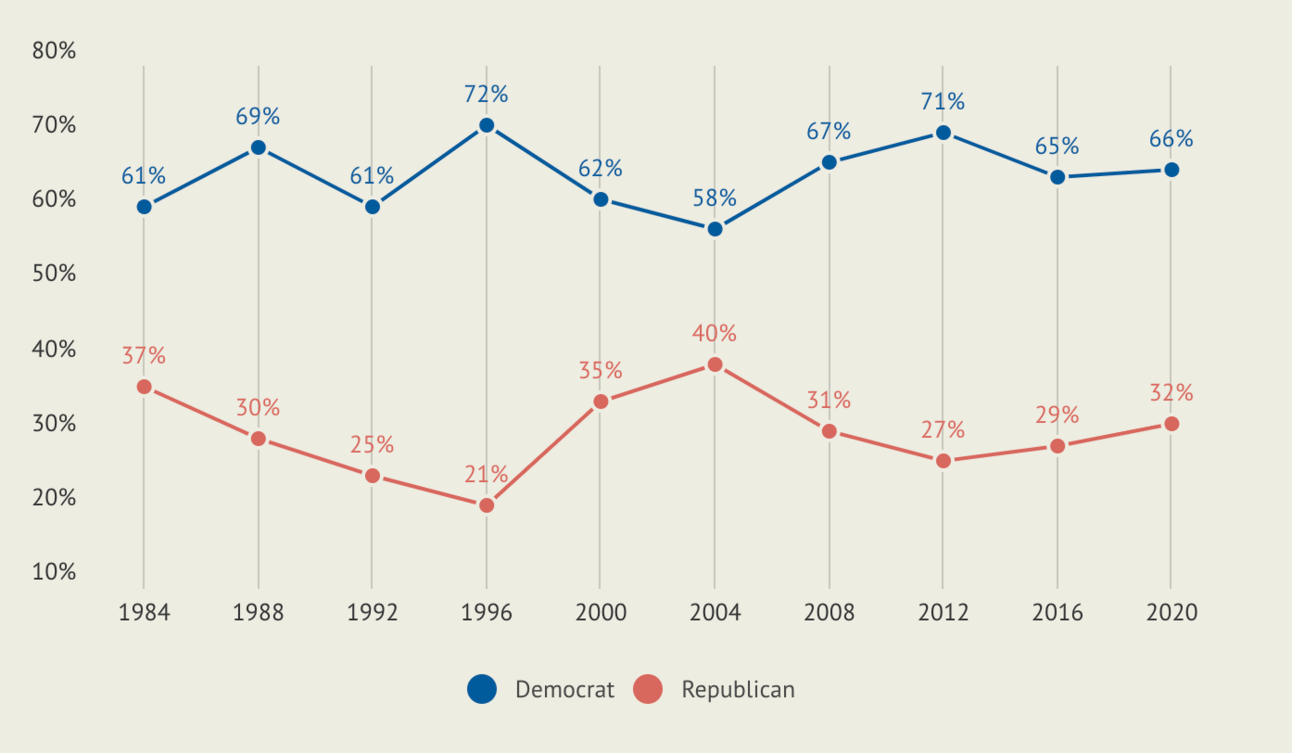
Latino Exit Poll Voter Support divided by Party per CNN data | Courtesy of AS/COA
Yet, Latino support for Trump was not limited to men. Latina women, though they leaned more Democratic, also showed an increase in support for Trump compared to previous years. Blaming Latino men alone is both simplistic and divisive, overshadowing the complex reasons behind voting patterns across demographics. A fair analysis must recognize the diversity of Latino perspectives, rather than making one group the scapegoat for election outcomes.
How Lil’ Libros raised over $2 Million on Wefunder, and FounderFamilia Announces Dale Pitch Competition Winners

Breaking Down a Crowfunding Deal: How Lil’ Libros raised over $2 Million on Wefunder
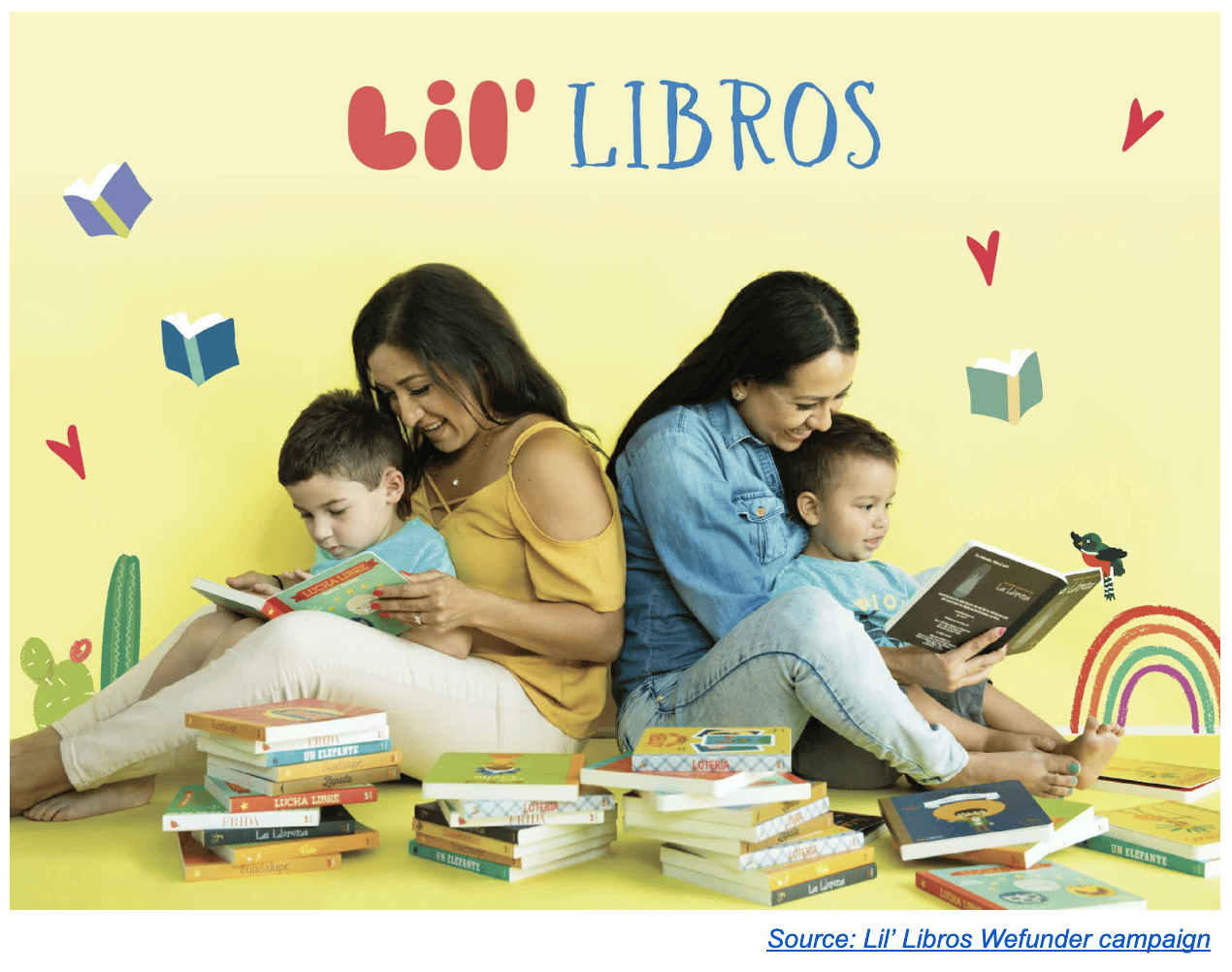
Continuing our analysis of alternate fundraising avenues for founders, this week we’re exploring our second community-based raise with Lil’ Libros and their crowdfunding campaign on Wefunder as our case study.
Founded by two Latina mothers, Patty Rodriguez and Ariana Stein, Lil’ Libros was born out of their desire to share their unique culture, stories, and language with their children. Finding quality bilingual children’s books that were culturally relevant, however, proved to be extremely challenging for both of them. There was a clear shortage of bilingual books, as well as a gap in children books that highlighted Latine characters.
As a result of their experiences, Patty and Ariana set out to create an independent bilingual children’s media company, with the goal of not only filling this gap, but also providing Latine authors and illustrators with a platform to share their stories.
Lil’ Libros’ mission and narrative resonated deeply with thousands of its Wefunder supporters, including Veronica Garza, co-founder of Siete Family Foods. By the time of their raise, the company had already hit major milestones.
Below are some key factors that helped Lil’ Libros achieve their over $2 million raise from close to 6,000 individual investors in 2022:
$1.7 Million gross revenue in 2020, marking an 18% increase in revenue from the year prior.
Successfully pitching themselves into major retail stores like Target, Barnes & Nobles, MoMa, plus over 2,500 independent retailers.
Plans for continued growth via product and offering expansions, signaling their desire to scale into a larger company.
Since their campaign, Lil’ Libros has gone on to expand their consumer product offerings to include games and toys, while also securing a second year collaboration with the Honest Company to produce diapers with Mexican-inspired Alebrije designs.
FounderFamilia Announces ¡Dale! Summit Pitch Competition Winners
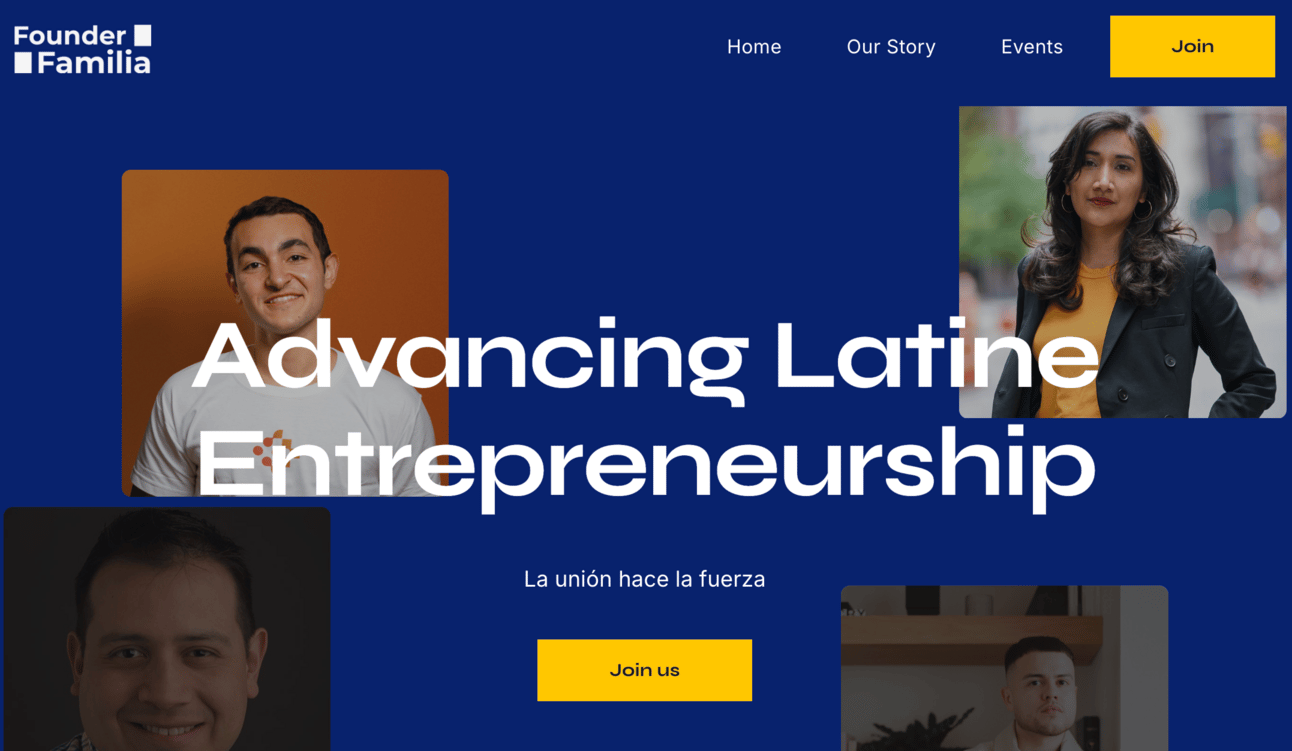
Courtesy of Founder Familia
Recently, ten Latine founders pitched their startups during FounderFamilia’s inaugural ¡Dale! Summit, hosted in partnership with Techqueria in Santa Monica, CA. The pitch competition was targeted to support Latine founders, who face higher barriers to obtaining startup capital. Two prizes were awarded, with the first choice winner receiving a $25,000 cash prize, and the runner up winning $10,000.
This year founder Val Emmanuel secured the top prize of $25,000 for her company, Rifcare. Rifcare focuses on period care products, offering non-toxic and sustainable options made from organic cotton and hemp fiber. The second-place prize of $10,000 went to Ody De La Paz, founder of Sensytec, whose company uses sensory technology to improve quality control and monitoring of concrete structures.
La Esquinita is written by Comprende Collaborator, Adriana Román. Learn more about Adriana or connect with her on LinkedIn here
FOUNDERS:
If you’re a founder who wants to get further connected and learn more about Comprende, be featured in our newsletter or marketplace, or inquire about our creative and strategy agency services, please fill out this form:

How to Make: The Classic Arepa
(Warning: Making this dish may spark friendly debates between your Venezuelan and Colombian friends about who makes the real arepa!)
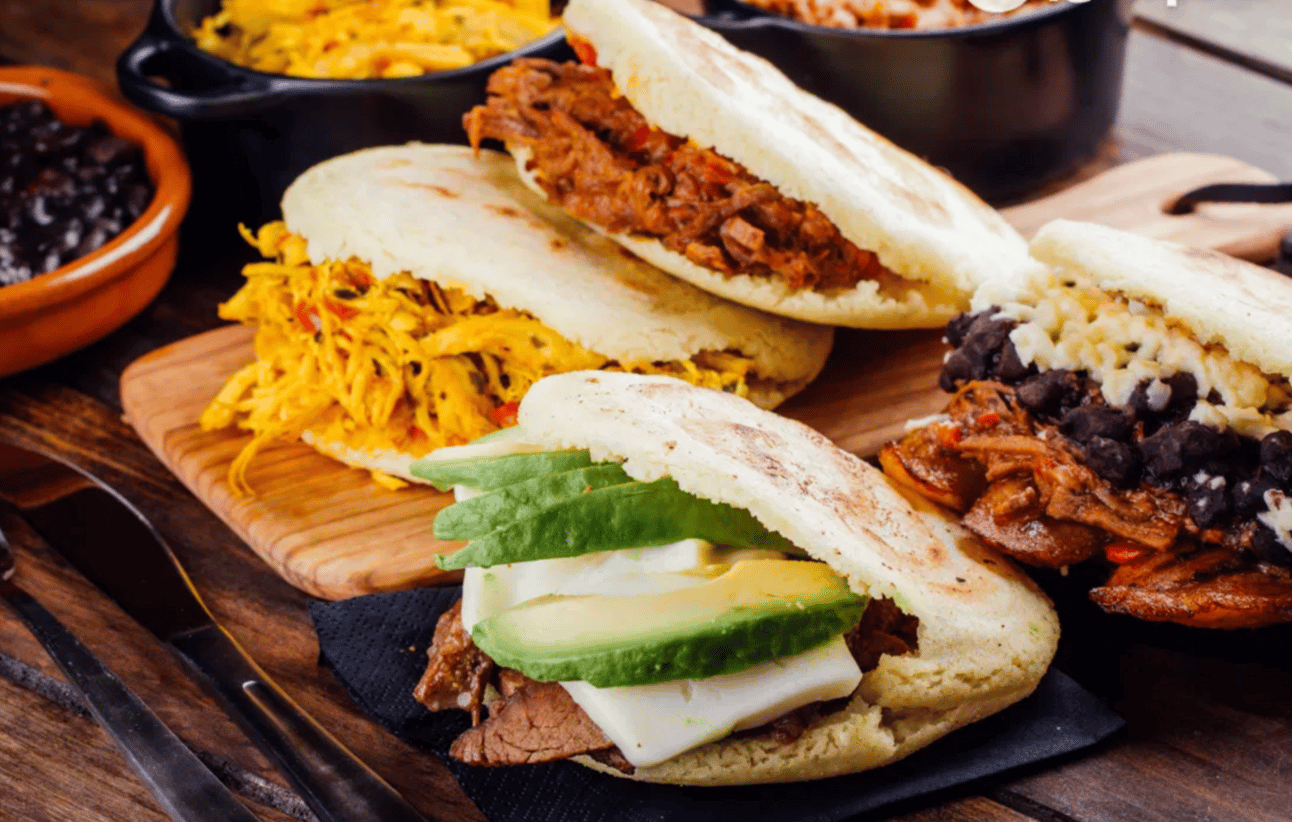
Variety of Arepas | Courtesy of de Rechupete
The arepa, a beloved corn cake, is a staple in both Venezuelan and Colombian kitchens. Each country claims it as their own, with unique spins that make each version special. But one thing’s for sure: no matter where your arepa allegiances lie, it’s delicious, easy to make, and endlessly versatile.
Ingredients:
2 cups pre-cooked cornmeal (look for brands like P.A.N.)
2 ½ cups warm water
1 tsp salt
1 tbsp vegetable oil or melted butter
Instructions:
Mix the Dough: In a large bowl, mix the warm water with salt. Slowly add the cornmeal, stirring constantly to avoid lumps. Let the mixture sit for 5 minutes to absorb the water.
Knead: With your hands, knead the dough until it’s smooth and soft, without cracks. If it feels too dry, add a bit more water; if too wet, sprinkle a bit more cornmeal.
Shape the Arepas: Divide the dough into equal portions (about the size of a golf ball). Roll each portion into a ball and flatten it into a patty, about ½ inch thick.
Cook: Heat a skillet or griddle over medium heat and add a small amount of oil. Place the arepas in the skillet and cook for 5–7 minutes on each side, or until they’re golden brown with a slight crust.
Serve: Slice the arepas in half and fill with your choice of ingredients. Arepas are often stuffed with everything from shredded meat, chicken, to black beans, cheese, and more.
Suggested Fillings:
Cheese (mozzarella or queso fresco)
Shredded beef or chicken
Black beans
Avocado
Scrambled eggs and ham for a breakfast arepa
Whatever your corazón desires - get creative!
Serve hot, and don’t be surprised if the debate over who makes the best arepa comes up again around the table—just smile and enjoy your delicious, warm arepa!

Last week, we asked: What is the name of the traditional Salvadoran beverage made from fermented corn?
The right answer was: Chicha
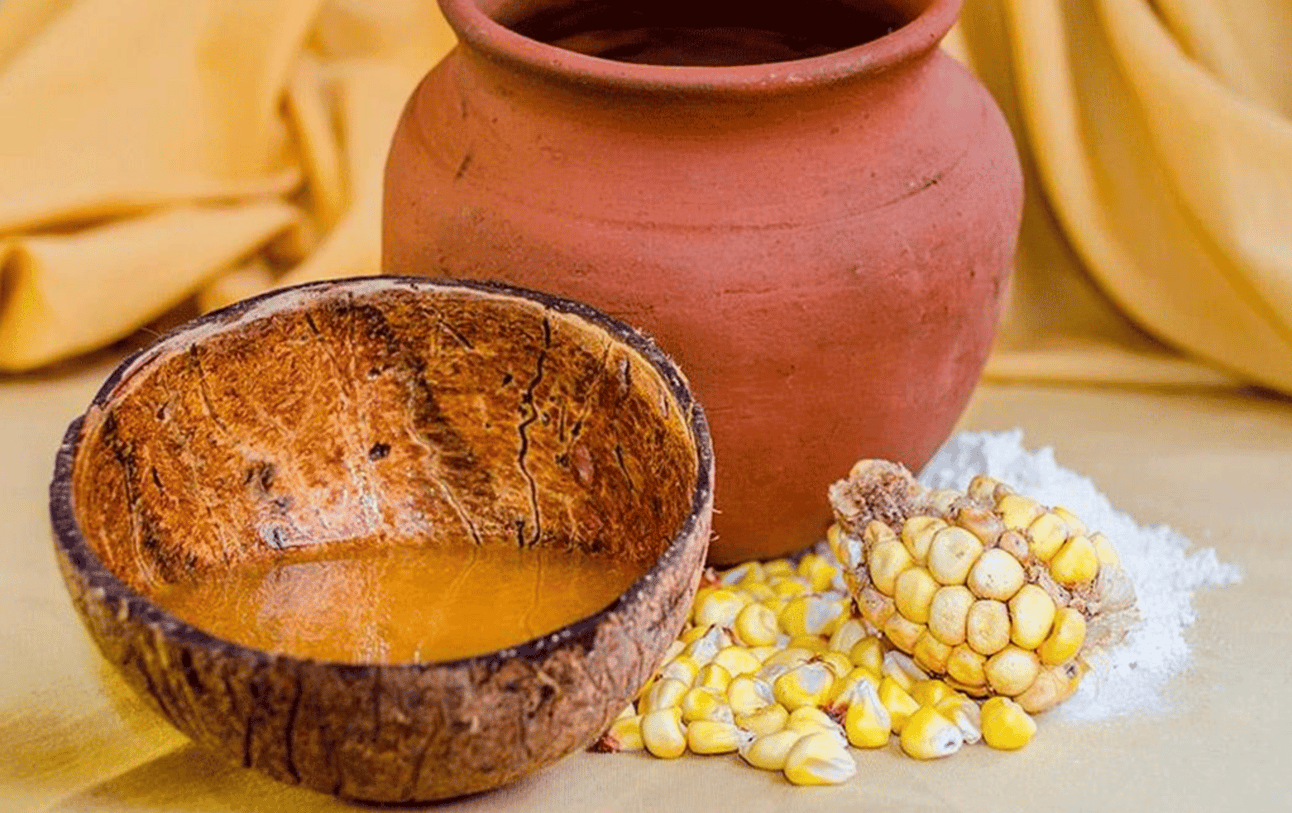
Chicha | Courtesy of Guanacos
The traditional Salvadoran beverage made from fermented corn is called chicha. This drink has roots in Indigenous Salvadoran culture and is cherished for its slightly sweet, tangy flavor. To make chicha, corn is soaked, fermented, and sometimes mixed with sugar, pineapple, or other fruits to enhance its taste. The fermentation process gives it a mild alcohol content, though non-alcoholic versions are also common. Chicha is typically enjoyed during celebrations and festivals, connecting Salvadorans to their heritage and culinary traditions.

Question: Who was the first Latino astronaut in NASA?
Reply with your guess! Answers will be revealed in the next newsletter!

Enjoyed today’s comprende newsletter? Please share it with family, friends, and Latino-business owners using the link below.
https://comprende.carrd.co/




